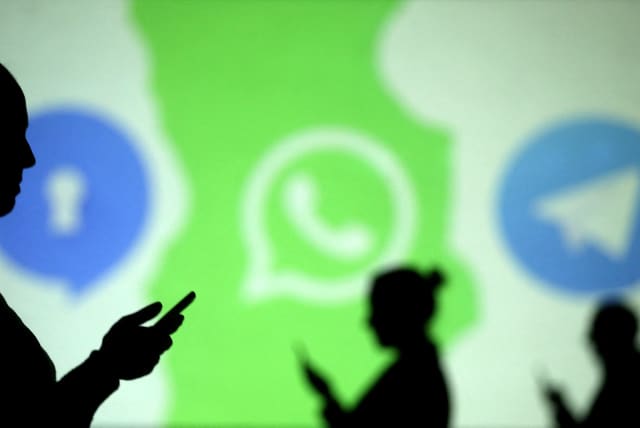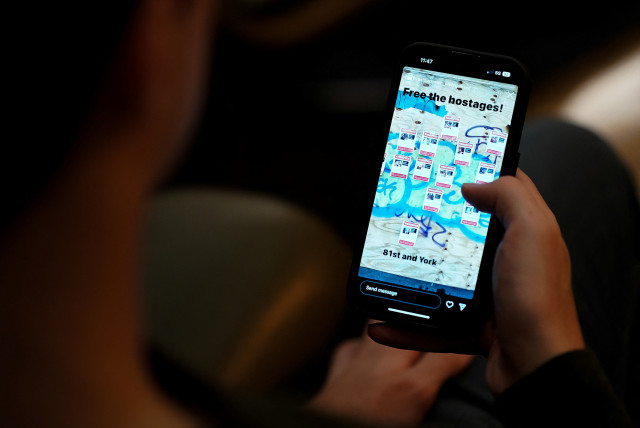This isn't about the war, it's about being heard - opinion

Especially for those of us in the Diaspora, where there is so much noise, there are so many words. But there is so little communication.
This is not about Israel. Or Palestine. Or Gaza. It is not about Hamas, the atrocities perpetrated, or about civilian deaths on both sides of the border. It is about the message. And about our ability to speak, be heard, and in turn, to listen, and to hear.
Ten minutes on anyone’s social media feed and it becomes evident that there is not a lot of that happening. Especially for those of us in the Diaspora, where there is so much noise, there are so many words. But there is so little communication.
I remember as a young child when a larger-than-life cousin called Maureen (not her real name) came to visit us in South Africa. It was the first time I had met an American, let alone a New Yorker. She was a lot. In all senses of the word, a caricature of what we imagined one to be.
I will never forget sitting in the back seat of my mother’s Datsun on a drive out to Hartbeespoort Dam where we’d ride the cable car, thinking that I needed to open the window to let out some of her sound. I had never heard anyone so loud and struggled to cope or process anything that she was saying. It felt more like an assault than a discussion.
Later that night, when I asked my mother why cousin Maureen didn’t have an indoor voice, she explained that maybe Maureen, who lived alone in an overcrowded area didn’t feel heard. And so, as a result, and in desperation, she got louder and louder and louder to ensure that she did.
The more we shout and scream, the less we are heard
It didn’t work. Because all I could hear was sound. And not the message. I avoided her after that until she went home to her overcrowded city, where she lived alone.
This was before social media. And yet the principle still seems to apply. We live in an environment of followers, commentators, supporters, and adversaries. We are desperate to be heard, and yet the more we shout and scream, the less we are.
It seems that this is not a new problem. Prior to Maureen, there was King David who is said to be the author of Proverbs. He understood this well when he wrote, “They have mouths but cannot speak, and eyes but cannot see. They have ears but cannot hear, and noses but cannot smell. They have hands but cannot feel, and feet but cannot walk, and throats but cannot make a sound. And those who make idols are just like them, as are all who trust in them.”
Simon and Garfunkel picked up on this theme in the “Sound of Silence:”
And in the naked light I saw
Ten thousand people, maybe more
People talking without speaking
People hearing without listening
People writing songs that voices never share
No one dared
Disturb the sound of silence.
It’s not just the volume that shifts when we are unheard. In our desperation, we often become more dramatic, more extreme, we exaggerate, and then resort to hyperbole. Instead of making a point that seems mundane, we dramatize it so that there is a greater chance of being paid attention to.
In our fractured worlds, we are all living with pain
Ironically, much like cousin Maureen, the louder we get the less we are heard.
Another aspect of our fractured world is that we are living with pain. Whereas some of us are deeply connected to Israel, through faith and family, others in the diaspora are connected to the Palestinian cause for similar reasons. Some of us support one side or another because of sympathy with friends or life experiences. It doesn’t matter how we came to it. It matters that the pain of the current situation sometimes feels too much to handle.
For those of us who are assisting in fighting the war on social media outside of Israel, this is a particular challenge. It might feel good to shout “Am Yisrael chai!” from social media rooftops, but it will likely be met with a chant of “Palestine will be free!”
South Africa is a particularly challenging environment. With an African National Congress (ANC) government that is overtly anti-Israel, and covertly antisemitic, and is comfortable throwing around emotive expressions such as “apartheid” and “genocide,” the dialogue is more difficult.
In addition to their well-established bias, they are an enormously unpopular party that will face the country in the polls next year. They are desperate for social currency and seem to have established that hating Israel is one way for them to achieve it.
The Israeli government and media have been strategic and helpful in terms of recording, noting, and disseminating accurate information. There has been a noticeable uptick in quality and accuracy in the reporting of events and the ability for those of us around the world to access such information.
No matter how people present, they are all vulnerable'
Valuable tools counter the noise of Israel hatred.
A wise friend, retired but still very active, Judge Ezra Goldstein has a habit of speaking at family functions. His message to the next generation is consistent and unequivocal. “Imagine ‘Fragile! Handle with care!’ written on each person’s forehead.” His message is that no matter how people present, they are still fragile and they are still dealing with things that make them vulnerable.
Cousin Maureen was one such case. She was both unheard and fragile. Her trip to South Africa came at a time when she was feeling this profoundly. What was annoying and off-putting to us, was simply a reflection of her need to be heard and seen.
This is not about Maureen. Or Israel. Or Palestine. Or Gaza. Or Hamas. It is about us. And it is a reminder to us all that it’s the accuracy and reliability of information that is required and not just an increase in volume that will increase our chances of our message being delivered.
The writer is the South African author of three books. He is a featured weekly columnist on News24 and Jewish Report and is a talk show host on the Morning Mayhem. He is head of marketing and people at Synthesis Software Technologies.
Jerusalem Post Store
`; document.getElementById("linkPremium").innerHTML = cont; var divWithLink = document.getElementById("premium-link"); if (divWithLink !== null && divWithLink !== 'undefined') { divWithLink.style.border = "solid 1px #cb0f3e"; divWithLink.style.textAlign = "center"; divWithLink.style.marginBottom = "15px"; divWithLink.style.marginTop = "15px"; divWithLink.style.width = "100%"; divWithLink.style.backgroundColor = "#122952"; divWithLink.style.color = "#ffffff"; divWithLink.style.lineHeight = "1.5"; } } (function (v, i) { });

